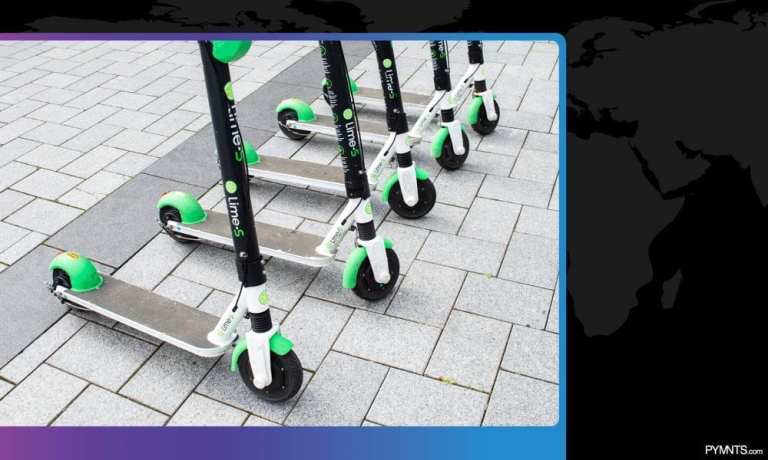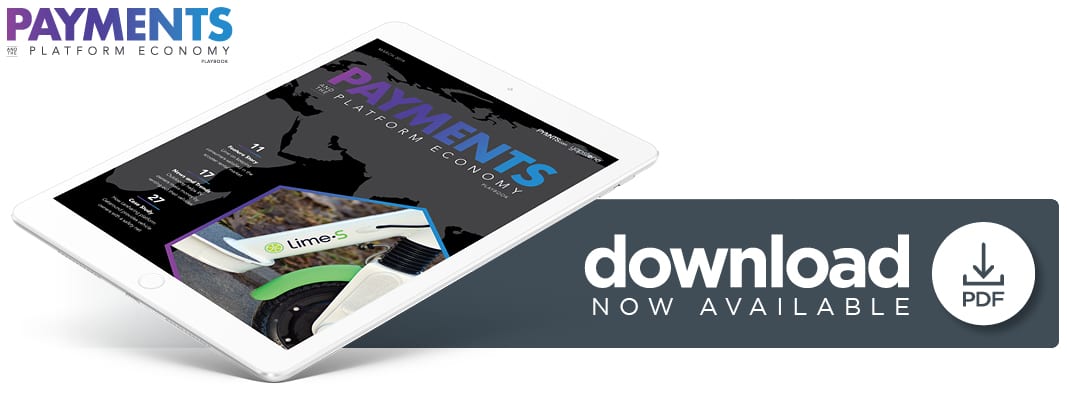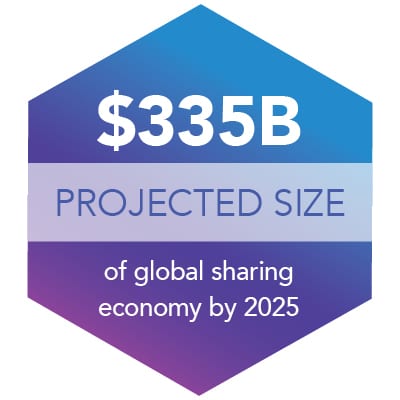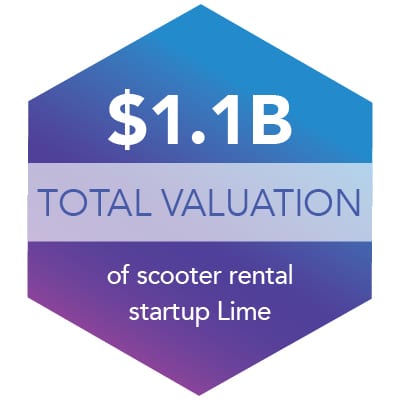How Lime Is Using Payments To Win The Global Scooter Race

 Trust keeps the sharing economy afloat. It’s what makes sellers feel comfortable with lending their personal properties to buyers whom they have never met. It’s also what keeps buyers feeling assured that suppliers will not take their hard-earned cash without delivering the services they promise.
Trust keeps the sharing economy afloat. It’s what makes sellers feel comfortable with lending their personal properties to buyers whom they have never met. It’s also what keeps buyers feeling assured that suppliers will not take their hard-earned cash without delivering the services they promise.
In the March edition of the Payments and the Platform Economy Playbook, PYMNTS focuses on how sellers use digital platforms to reach new customers, and how those platforms help suppliers and buyers build a sense of mutual trust in the ever-expanding sharing economy.
For more on the latest in sharing economy market trends, download the Playbook.
 Around the Payments and Platform Economy World
Around the Payments and Platform Economy World
In the U.S., several key players have recently pushed back against false feedback. The Federal Trade Commission (FTC), for one, filed a suit against a company for posting a paid review to an independent website. Online retail giant Amazon is also making a similar push to ensure the reliability of its brand.
Meanwhile, some players, like recreational vehicle (RV)-sharing platform Outdoorsy, are turning to new tech as they look to build trust on their platforms. The Outdoorsy platform enables America’s approximate 18 million RV owners to lend their vehicles during the 97 percent of the time that they sit unused on the front lawn. Outdoorsy establishes trust between users by requiring borrowers to provide personally identifiable information (PII) before use.
The company’s CEO, Jeff Cavins, recently noted that as much as 33 percent of all transactions that take place on the platform are completed instantly, thanks to an inbuilt machine learning (ML) system that vets and approves their transactions.
To read about more recent news and trends in the sharing economy, read the Playbook.
How Localized Payments Give Lime a Leg Up in the Rental Scooter Race
For urbanites on the go, Lime offers an attractive and cheaper alternative to the standard taxi or Uber with its scooter- and bike-sharing networks. However, while Lime is using its more than $300 million investment from Google parent Alphabet, among others, to upgrade its services, it’s  facing more competition than ever from brands like Bird, Spin and Juice Bike.
facing more competition than ever from brands like Bird, Spin and Juice Bike.
To maximize the availability of its bikes and scooters throughout the 15 countries in which it operates, Lime accepts a wide variety of different payment methods, ranging from cards to mobile wallets.
Ryan Foutty, senior director of business development for Lime, pointed out that Lime has experienced success with its own wallet. The wallet allows users to customize their scooter-riding experiences by processing their payments automatically whenever they choose to ride — similar to embedded payments on the Uber app.
To read the entire Lime feature story, read the Playbook.
Case Study: How Car-Sharing Platform Getaround Provides Vehicle Owners with a Safety Net
While car owners may be eager to cash in on the sharing economy, they don’t want to lend their cars to people they can’t trust. Car-sharing platform Getaround aims to give owners peace of mind — along with some extra dough — when lending out their cars via digital-sharing platforms.
 One of its distinguishing features includes the guarantee of a $1 million insurance policy for each booking, including a $1,000 damage fee. The inbuilt insurance program is not only designed to keep renters on the hook to take care of borrowed vehicles, but aims to keep lenders resting easy that they are financially covered in case of accidents.
One of its distinguishing features includes the guarantee of a $1 million insurance policy for each booking, including a $1,000 damage fee. The inbuilt insurance program is not only designed to keep renters on the hook to take care of borrowed vehicles, but aims to keep lenders resting easy that they are financially covered in case of accidents.
Along with guaranteed insurance, Getaround supports an automated verification system, which examines users’ credit histories automatically. According to Getaround Vice President of Product and Engineering John Marshall, this means trust is built into the platform. The company has “long-emphasized the need to remove friction of signing up and logging in, while maintaining a safe and secure marketplace.”
To read the case study in depth, download the Playbook here.
About the Playbook
The monthly Payments and the Platform Economy Playbook series, a collaboration between with Yapstone, aims to help platform payment decision-makers identify and manage the risks and rewards inherent in shaping their approaches, enabling them to optimize their operations and navigate the real-time challenges they face.